Screening pre-emergence herbicides for weed control during early elephant grass growth
DOI:
https://doi.org/10.17138/tgft(12)191-199Abstract
Two experiments were carried out in the municipality of Coronel Pacheco, Minas Gerais State, Brazil in 2020 and 2021 to identify additional herbicide options for weed control during early elephant grass pasture establishment. Thirteen pre-emergence herbicides were compared to weed-free and weedy controls in a randomized complete block design with 4 replications. Forage yield losses were significant as a result of weed interference throughout the entire crop cycle. The most phytotoxic treatments were trifluralin and diuron + hexazinone. Weed control was effective for all treatments, except for trifluralin applied alone. Elephant grass dry matter yield was not influenced by diuron, ametryne, flumioxazin and metribuzin, identifying them as potential pre-emergence herbicides for weed control in elephant grass pastures.
References
Abreu JG de; Evangelista AR; Souza IF de; Rocha GP; Soares LQ; Santarosa LC. 2006. Glyphosate and nitrogen in the control of Brachiaria decumbens Stapf in established elephant grass stocking piles. Ciência e Agrotecnologia 30(5):977–987. (In Portuguese). doi: 10.1590/S1413-70542006000500023
Alvares CA; Stape JL; Sentelhas PC; Gonçalves JLM. 2013. Modeling monthly mean air temperature for Brazil. Theoretical and Applied Climatology 113(3–4):407–427. doi: 10.1007/s00704-012-0796-6
Bonfá CS; Castro GHF; Villela SDJ; Santos RA; Evangelista AR; Jayme CG; Gonçalves LC; Pires Neto OS; Barbosa JAS. 2015. Elephant grass silage added to passion fruit's peel. Arquivo Brasileiro de Medicina Veterinária e Zootecnia 67(3):801–808. (In Portuguese). doi: 10.1590/1678-4162-7982
Borges LS; Aquino FC de; Evangelista AF. 2016. Elephant grass potential to generate bioenergy–review. Nutritime Revista Eletrônica 13(1):4518–4523. bit.ly/47yllbk
Brighenti AM; Calsavara LHF; Varotto YVG. 2017a. Preemergence herbicides on weed control in elephant grass pasture. Ciência e Agrotecnologia 41(1):52–59. doi: 10.1590/1413-70542017411024516
Brighenti AM; Ledo FJS; Machado JC; Calsavara LHF; Varotto YVG. 2017b. Elephant grass response to amino-acid synthesis inhibitor herbicides. Australian Journal of Crop Science 11(1):38–42. doi: 10.21475/ajcs.2017.11.01.pne187
Brighenti AM; Oliveira MF. 2018. Periods of interference by Cyperus esculentus L. in Pennisetum purpureum Schum. Acta Agronómica 67(4):512–516. doi: 10.15446/acag.v67n4.69985
Cutts GS; Webster TM; Grey TL; Vencill WK; Lee RD; Tubbs RS; Anderson WF. 2011. Herbicide effect on napiergrass (Pennisetum purpureum) control. Weed Science 59(2):255–262. doi: 10.1614/WS-D-10-00130.1
Ferreira EA; Silva AF; Silva AA; Silva DV; Galon LL; Santos JB. 2012. Herbicides toxicity in sugar cane genotypes. Revista Trópica-Ciências Agrárias e Biológicas 6(1):84–92. (In Portuguese). bit.ly/4ea3EBn
Köppen W. 1948. Climatologia. Gráfica Panamericana, Buenos Aires, Argentina.
Lira Júnior WB; Bezerra SBL; Paula TA; Beelen RN; Amorim PL; Beleen PMG. 2018. Characteristics of Pennisetum purpureum and passion-fruit-peel silages. Arquivo Brasileiro de Medicina Veterinária e Zootecnia 70(3):905–912. (In Portuguese). doi: 10.1590/1678-4162-9410
MAPA (Ministério da Agricultura Pecuária e Abastecimento). 2024. Agrofit: Sistema de Agrotóxicos Fitossanitários. bit.ly/3MVRJLv
Pereira AV; Auad AM; Brighenti AM; Mittelmann A; Gomide CAM; Martins CE; Paciullo DSC; Ledo FJS; Oliveira JS; Leite JLB; Machado JC; Matos LL de; Morenz MJF; Andrade PJM; Bender SE; Rocha WSD da. 2021. BRS Capiaçu e BRS Kurumi: Cultivo e Uso. Embrapa Gado de Leite, Brasília, DF, Brasil. bit.ly/3TBbV9a
Pereira AV; Ledo FJS da; Morenz MJF; Leite JLB; Brighenti AM; Martins CE; Machado JC. 2016. BRS Capiaçu: Cultivar de capim-elefante de alto rendimento para produção de silagem. Comunicado Técnico 79. Embrapa Gado de Leite, Juiz de Fora, MG, Brazil. bit.ly/3TDJKpZ
Ribeiro Júnior JI. 2001. Análises estatísticas no SAEG. Editora UFV, Viçosa, MG, Brasil.
Rocha JRASC; Marçal TS; Salvador FV; Silva AC da; Machado JC; Carneiro PCS. 2018. Genetic insights into elephantgrass persistence for bioenergy purpose. Plos One 13(9):e0203818. doi: 10.1371/journal.pone.0203818
Rosa PP da; Silva PM da; Chesini RG; Oliveira APT de; Sedrez PA; Faria MR; Lopes AA; Roll VFB; Ferreira OGL. 2019. Characteristics of Elephant grass Pennisetum purpureum (Schumach) and its new cultivars BRS Kurumi and BRS Capiaçu. Pesquisa Agropecuária Gaúcha 25(1/2):70–84. (In Portuguese). doi: 10.36812/pag.2019251/270-84
Santos HG dos; Jacomine PKT; Anjos LHC dos; Oliveira VA de; Lumbreras JF; Coelho MR; Almeida JA de; Araújo Filho JC de; Oliveira JB de; Cunha TJF. 2018. Sistema Brasileiro de Classificação de Solos. 5th ed. revista e ampliada. Embrapa Solos, Brasília, DF, Brazil. handle/doc/1094003
Silva W; Vilela D; Pereira AV; Ferreira FA; Ferreira RP. 2002. Reduction of Brachiaria decumbens interference on Pennisetum purpureum pasture establishment through herbicides. Planta Daninha 20(2):273–281. (In Portuguese). doi: 10.1590/S0100-83582002000200014
Silva VB da; Daher RF; Menezes BRS; Oliveira MLF; Araujo MSB; Novo AAC. 2017. Different stability methods for cultivar recommendation in elephantgrass for energy purposes. Cerne 23(4):507–515. doi: 10.1590/01047760201723042292
Velini ED; Osipe R; Gazziero DLP. 1995. Procedimentos para instalação, avaliação e análise de experimentos com herbicidas. Sociedade Brasileira da Ciência das Plantas Daninhas (SBCPD), Londrina, PR, Brasil. bit.ly/47yAU2A
How to Cite
Downloads
Downloads
Published
Issue
Section
License
Copyright (c) 2024 Tropical Grasslands-Forrajes Tropicales

This work is licensed under a Creative Commons Attribution 4.0 International License.




